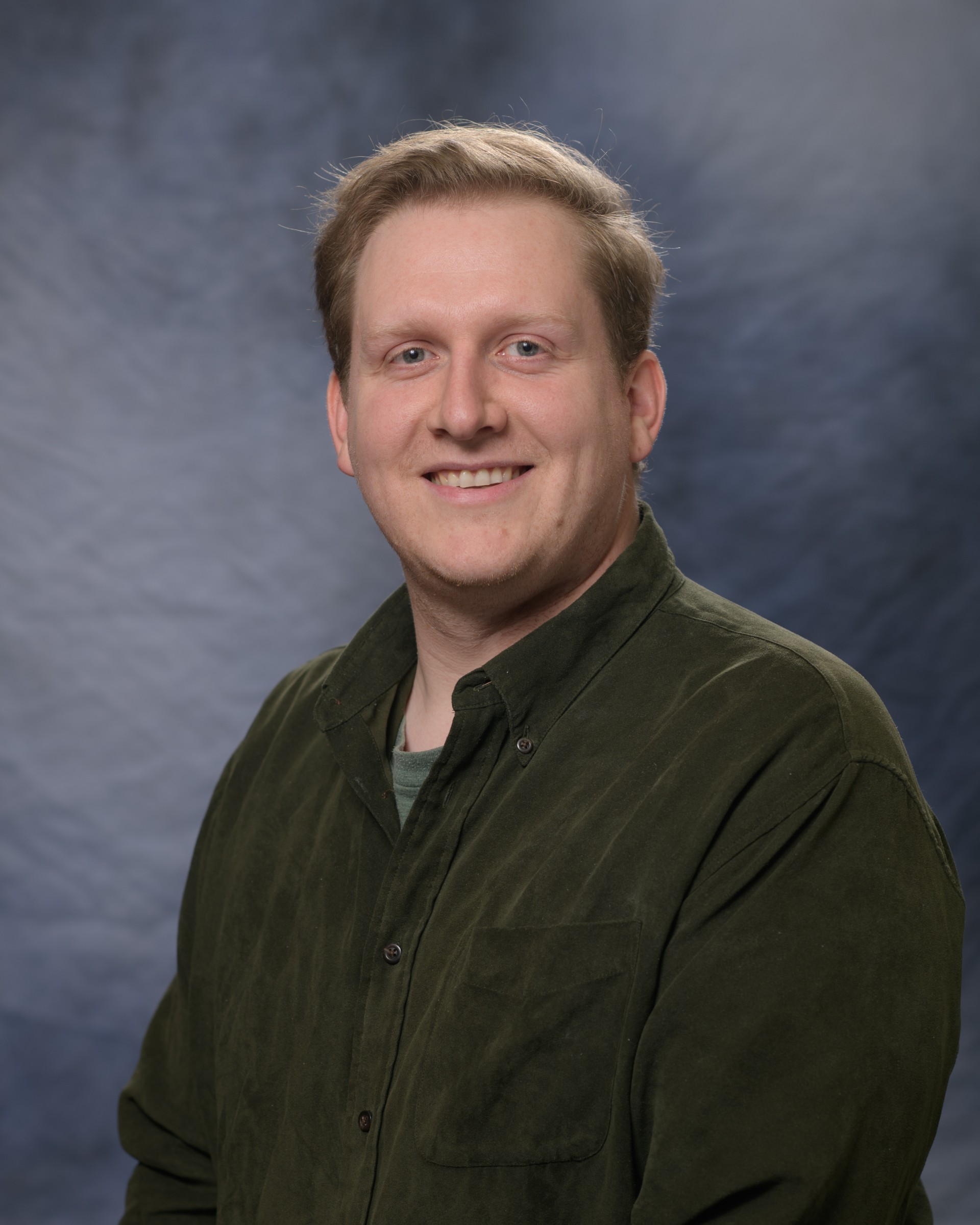Nelson, S. (2026). Formalizing phonological
knowledge verses usage with weighted logic. Old-World Conference in
Phonology 23 (OCP2023). University of Cambridge. Cambridge, UK,
England.
Nelson, S. & Baković, E. (2026). Feature
spreading and redundancy with BMRS. Old-World Conference in Phonology 23
(OCP23). University of Cambridge. Cambridge, UK, England.
Nelson, S. (2026). Discrete Interpretations
of Continuous Representations in Model-Theoretic Computational
Phonology. Workshop on The Role of Representation in Computational
Phonology. University of Cambridge. Cambridge, UK, England.
Nelson, S. (2026). Phonological Knowledge,
Weighted Logic, and the Competence/Performance Distinction. Annual
Meeting of the Linguistic Society of America (LSA). New Orleans, LA,
USA.
Nelson, S. & Baković, E. (2026). A BMRS
analysis of Trojan vowels in Hungarian vowel harmony. Annual Meeting of
the Linguistic Society of America (LSA). New Orleans, LA, USA.
Hayes, M. & Nelson, S. (2026). Poetic Rhyme
as a Tier-Based Strictly Local Constraint. Annual Meeting of the
Linguistic Society of America (LSA). New Orleans, LA, USA.
Stephanov, A. & Nelson, S. (2025).
Formalizing the Venetian ‘Evanescent’ /l/: A Three-Perspective Analysis.
Going Romance 2025. Ca’ Foscari University of Venice, Venice,
Italy.
Stephanov, A. & Nelson, S. (2025).
Formalizing the Venetian ‘Evanescent’ /l/: A Three-Perspective Analysis.
Annual Meeting on Phonology 2025 (AMP). University of California
Berkeley. Berkeley, CA, USA.
Nelson, S. (2025). Using Model Theory and
Function Types to Formally Relate Symbolic and Dynamic Theories of
Speech. Dynamic Models of Speech (DYMOS). University of Oregon.
Eugene, OR, USA.
Nelson, S. (2025). Phonological Knowledge,
Weighted Logic, and the Competence/Performance Distinction. North
American Phonology Conference 13 (NAPHC). Concordia University,
Montreal, Quebec, CA.
Nelson, S. & Baković, E. (2024). Computation Clarifies
Mixed Specification Behavior of Coronals in English. Annual Meeting
on Phonology 2024 (AMP). Rutgers University, New Brunswick, NJ,
USA.
Nelson, S. (2024). Coronal is Never
Underspecified in English: a Computational View. 29th Annual
Mid-Continental Phonetics & Phonology Conference (MidPhon).
University of Illinois Urbana-Champaign, Urbana, IL, USA.
Nelson, S. (2024). BMRS and
Underspecification. Rutgers Subregular Phonology Workshop. Rutgers
University. New Brunswick, NJ, USA.
Nelson, S. & Baković, E. (2024). Underspecification
without Underspecified Representations. Society for Computation in
Linguistics 2024 (SCiL). University of California Irvine. Irvine, CA,
USA.
Nelson, S. (2024). Optionality and the
Phonetics-Phonology Interface. 42nd West Coast Conference on Formal
Linguistics (WCCFL). University of California Berkeley. Berkeley, CA,
USA.
Chandlee, J., Jardine, A., & Nelson, S.
(2024). Tutorial: Logic
and Model Theory for Phonology. Annual Meeting of the Linguistic
Society of America (LSA). New York, New York, USA.
Nelson, S. (2023). Unordered rules that only apply
to the input are not more complex than ordered rules. M100.
Massachusetts Institute of Technology. Cambridge, MA, USA.
Nelson, S. (2023). Model Theoretic Phonology and
Theory Comparison: Segments, Gestures, and Coupling Graphs. North
American Phonology Conference 12 (NAPhC). Concordia University,
Montreal, Quebec, Canada.
Taherkhani, N., Nelson, S., & Heinz, J.
(2023). A
Contrastive Hierarchy for Vowels in Southern Tati: Takestani
Dialect. North American Conference in Iranian Linguistics 3 (NACIL).
University of California Los Angeles, Los Angeles, CA, USA.
Nelson,S. (2022). Are Representations in
Articulatory and Generative Phonology so different?. Annual Meeting
on Phonology 2022 (AMP). University of California Los Angeles, Los
Angeles, CA, USA.
Nelson, S. (2022). Gestures, Coupling Graphs, and
Strings. Workshop on Model Theoretic Representations in Phonology
(WMTRP). Stony Brook University, Stony Brook, NY, USA.
Heinz, J. & Nelson, S. (2022). The Past, Present, and
Future of Model Theoretic Phonology. Workshop on Model Theoretic
Representations in Phonology (WMTRP). Stony Brook University, Stony
Brook, NY, USA.
Nelson, S. (2022). A Model Theoretic Perspective
on Phonological Feature Systems. Society for Computation in
Linguistics 2022 (SCiL).
Nelson, S. & Heinz, J. (2021). Incomplete Neutralization
and the Blueprint Model of Production. Annual Meeting on Phonology
2021 (AMP). University of Toronto, Toronto, Ontario, Canada.
Nelson, S. (2021). What can logic and model
theory tell us about phonological feature systems? Phonology in the
Northeast 2021 (PhoNE). New York University, New York, New York,
USA.
Nelson, S. (2020). The logical language of
phonological features. Northeastern Computational Phonology Workshop
2020 (NECPhon). Maryland University. College Park, Maryland,
USA.
Nelson, S. & Heinz, J. (2020). Incomplete Neutralization
is no Problem for Formal Phonology. Workshop on Theoretical
Phonology 2020 (WTPh). Concordia University. Montreal, Quebec,
Canada.
Nelson, S. (2019) Generalization in the absence of
variation within lexical retuning. Annual Meeting of the Linguistic
Society of America (LSA). New York, New York, USA.
Nelson, S. (2018). Lexical retuning is not the
same as audio-visual retuning: the former generalizes better. 23rd
Annual Mid-Continental Phonetics & Phonology Conference (MidPhon).
Northwestern University. Evanston, Illinois, USA.
Durvasula, K. & Nelson, S. (2018). Retuning
generalizes to new contexts. 16th Conference on Laboratory Phonology
(LabPhon). University of Lisboa. Lisboa, Portugal.
Pue, A. Sean & Nelson, S. (2018). Marking
Poetic Time: Building and Annotating a Hindi-Urdu Poetry Corpus for
Computational Humanities Research. Corpus-based Research in the
Humanities 2, Austrian Academy of Science. Vienna, Austria.
Durvasula, K. & Nelson, S. (2017). Perceptual retuning
targets features. Annual Meeting on Phonology 2017 (AMP). New York
University. New York, New York, USA.

